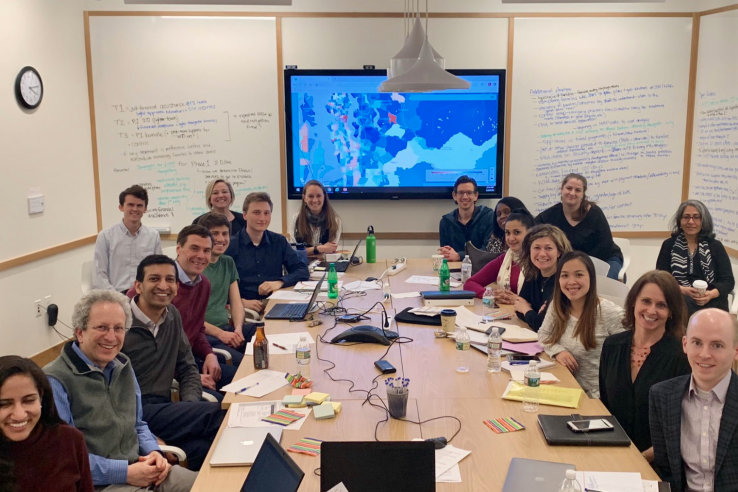September 2019 North America Newsletter

Dear Friend,
I am pleased to introduce you to our new monthly newsletter. We’ve created this resource to connect you—our colleagues, partners, and friends— to our work, including our latest initiatives to reduce poverty through evidence-informed policy. Each month, we will feature three stories, resources or updates from our office, in five minutes or less.
In our inaugural newsletter, we feature preliminary results from the Creating Moves to Opportunity (CMTO) project and bring you behind the scenes on the partnerships underlying the success of the CMTO project to date. We also introduce a blog series that highlights our Health Care Delivery Initiative’s (HCDI) work over the past six years and shares stories on new rigorous evidence that is informing health care policy in the US. Finally, we dive into a new J-PAL North America evidence review featuring rigorous research on homelessness prevention and reduction programs.
We are grateful for your interest and support. Please feel free to write to us and let us know what topics or stories interest you most. We want to tailor our future newsletters based on your feedback.
Mary Ann Bates
Executive Director, J-PAL North America
Lessons from new research on housing mobility and economic opportunity
New research from J-PAL affiliated professors, Bergman et al., outlines a promising strategy for reducing residential segregation and promoting economic mobility. The ongoing Creating Moves to Opportunity (CMTO) study in Seattle and King County, Washington is testing whether a comprehensive set of mobility services can help low-income families overcome barriers to moving to higher-opportunity areas. Preliminary results found that the mobility services significantly increased the share of families who moved to higher-opportunity neighborhoods. Lawrence Katz, Co-Scientific Director of J-PAL North America and one of the CMTO study authors, shares his reflections on the preliminary findings and how these and future results may inform housing policy moving forward. We also dug deeper into the planning and research management activities that drive the CMTO project forward, highlighting the role that a diverse set of partners played in carrying out this major study.
The Health Care Delivery Initiative (HCDI) celebrates six years of learning
In 2013, J-PAL North America launched HCDI to identify effective strategies to make health care more efficient, effective, and equitable in the US. What have we learned since its launch? A new J-PAL blog series highlights exciting examples of HCDI’s work and impact over the past six years. This five-part series shares reflections from Amy Finkelstein, J-PAL North America Co-Scientific Director and HCDI Chair, and explores four examples of how new rigorous evidence is informing health care policy in the US today. Topics include: workplace wellness programs, health disparities, overprescribing, and evaluating impact at scale.
J-PAL evidence review sheds light on promising approaches to reduce and prevent homelessness
In the US, more than half a million people experience homelessness on a given night and 1.4 million people pass through emergency shelters in a given year. The struggle for stable housing is shaped by numerous factors, including employment opportunities, housing market dynamics, and financial stability. How do we address an issue of such scope and complexity? Summarizing results across forty rigorous evaluations, a new J-PAL North America review sheds light on how rigorous research can help improve policies and services for people seeking to access and maintain stable, affordable housing.